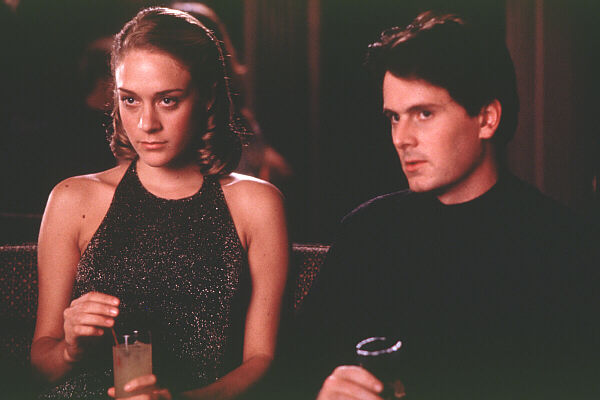
Ah, the SATs. How can a group of teens with different dreams for the future band together to steal the answers and beat the system? Humorlessly.
I caught this movie Friday night on TBS. I should have gone to bed. Somehow I excuse myself from putting the movies I watch on late nights on the weekend through the same standard set I employ during the week. I'll sit through much worse films at 2 am on a Saturday morning than I would at 7:15 pm on Friday night. And I don't know why. It's almost always a mistake.
One such mistake was watching The Perfect Score. It had a lot going for it. Scarlett Johanson (who has been good in movies such as Lost in Translation, Ghost World, and Match Point), Erika Christensen (who was good in Traffic), and Chris Evans (who surprised me with solid work in Sunshine) all have major roles. Well, okay. That's pretty much all it had going for it.
The scheme is lame and would never work, not even in my wildest dreams. The cast of misfits and popular kids never gel as a acting team. In fact, three of the performers should be ashamed of their performances in the film. Bryan Greenburg, Darius Miles (who, granted, is not a professional actor), and Leonardo Nam are awful. Everyone else is bad, but Greenburg, Miles, and Nam are truly awful. Nam in particular is all bravado and hi-yucks as the stoner of the crew. He sets the tone for the movie. Any easy joke available will be made. The movie is as smart as a stoner in the middle of a long day of bong-induced pleasure.
Even though the movie hints at the desire to look at the complexity of those high school-types that we know all too well, it fails. Everyone ends up being the sum of what we already know about them. Even as the characters change near the end (which they do all at the same time oddly enough), they still remain the products of the writers' memories of high school and certainly movies set in high school (they reference The Breakfast Club). But rather than exploring teenagers through in-depth conversation as in TBC (except maybe a few on rooftops or in the woods), we learn of these students' "complexities" through this hair-brained scheme.
Ah, the scheme. Even though the writers' put forth a lot of effort into making the heist of the answers exciting with close calls, alarms, and setbacks, I was bored. When they decide to steal the questions and complete the test as a team after a setback, I cringed. They'll beat the system by taking the test? Yahoo!
And you know some of these teens have to hook up! It wouldn't be a teen movie if nobody kissed or tightly embraced each other. Even The Breakfast Club fall into that mold.
Do they take their team answers and "cheat" on the test? Do they realize their dreams? Does anyone care? Not me.
P.S. - this movie is the perfect example of the misuse of voice over...
*1/2



















